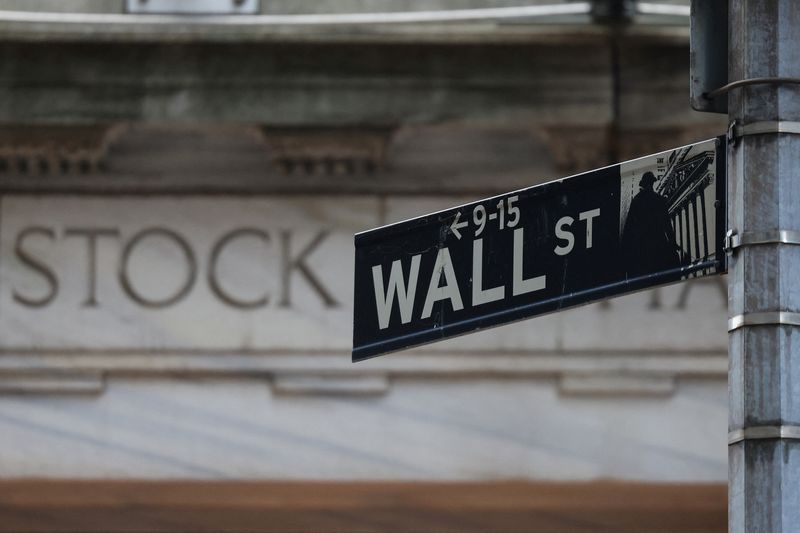By Wayne Cole
SYDNEY (Reuters) -Wall Street share futures rallied in Asia on Monday after the White House exempted smartphones and computers from “reciprocal” U.S. tariffs, though gains were limited as President Donald Trump warned levies were still likely at some point.
Indeed, Trump on Sunday told reporters tariffs on semiconductors would be announced over the next week and a decision on phones made “soon”.
On the face of it, the exemption of 20 product types accounting for 23% of U.S. imports from China, was a boon to manufacturers. However, the off-again, on-again policy gyrations left investors confused and analysts bearish on the long run.
“The post-Liberation Day back-pedalling has led some to breathe a sigh of relief. Not us,” said Bruce Kasman, head of economics at JPMorgan.
“A 10% universal tax is still a very large shock and the huge 145% tax on China is prohibitive,” he added. “You cannot stop trade between the world’s two largest economies and not expect damage everywhere. We maintain our call for a 60% likelihood of a U.S./global recession.”
After an initial jump, S&P 500 futures pared gains to be up 0.8%, while Nasdaq futures rose 1.2%. The S&P 500 rallied 5.7% last week, but was still more than 5% below where it was before the reciprocal tariffs were first announced in early April.
EUROSTOXX 50 futures firmed 2.6%, while FTSE futures added 1.8% and DAX futures 2.2%.
The market also has more earnings to weather this week with Goldman Sachs, Bank of America and Citigroup among the big banks reporting. Numbers from chipmaker TSMC <2330.TW> will be a highlight given Trump’s plan to investigate the entire global semiconductor supply chain.
Data out this week includes U.S. retail sales and Chinese gross domestic product, while Federal Reserve Chair Jerome Powell speaks on the economic outlook on Wednesday, when he will almost certainly be quizzed on the prospect of rate cuts and the recent stress in the Treasury market.
Early on Monday, there was scant sign of any recovery in bonds with 10-year yields at 4.48%, having seen the largest weekly rise in borrowing costs in decades.
NOT SO SAFE
MSCI’s broadest index of Asia-Pacific shares outside Japan rose 1.6%, having shed more than 4% last week.
Chinese blue chips gained 0.5%, with suppliers of Apple gear doing well.
Japan’s Nikkei added 1.6%, after fluctuating wildly in recent days in response to the changing tariff news.
Japanese officials are gearing up for trade negotiations with the United States that will likely touch on currency policy, with some officials privately bracing for Washington to call on Tokyo to prop up the yen.


